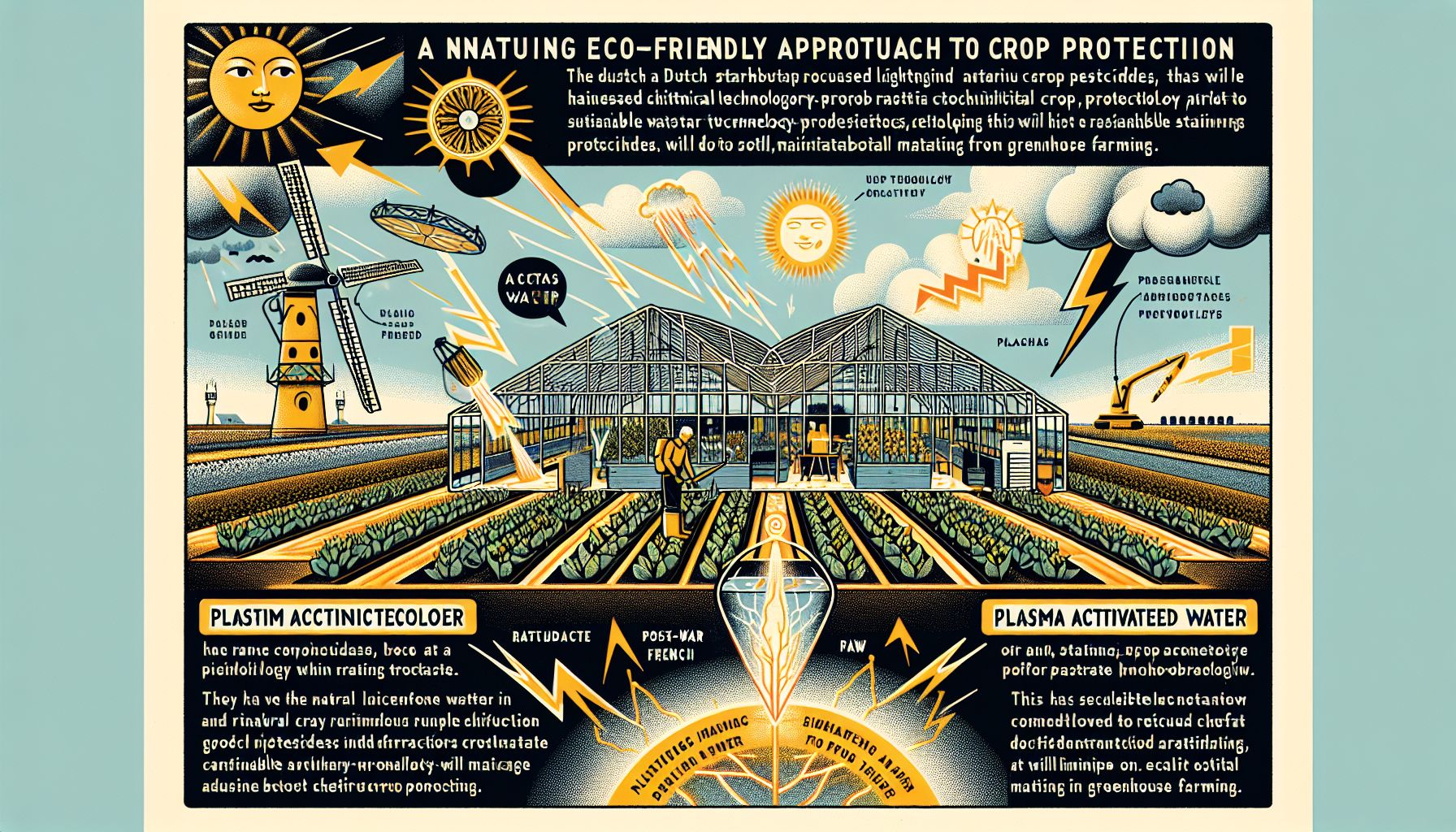Dutch Startup Harnesses Lightning Tech for Eco-Friendly Crop Protection

Eindhoven, Friday, 5 July 2024.
VitalFluid, a Dutch startup, has developed a groundbreaking alternative to chemical pesticides using plasma technology. By mimicking lightning’s natural disinfecting properties, their system creates Plasma Activated Water (PAW) on-site, offering sustainable crop protection and fertilization for greenhouse farming. This innovation could revolutionize agricultural practices, reducing environmental impact while maintaining crop health.
A Sustainable Innovation in Agritech
VitalFluid’s technology leverages the natural disinfecting properties observed when lightning strikes water. By creating Plasma Activated Water (PAW), VitalFluid offers a sustainable alternative to traditional chemical pesticides, which often have detrimental effects on the environment. This innovation is particularly significant for greenhouse farming, where maintaining a controlled and healthy environment for crops is crucial.
How Plasma Activated Water (PAW) Works
The core of VitalFluid’s technology is a reactor that converts ambient air into plasma, mimicking the effects of lightning. When this plasma is combined with water, it creates Plasma Activated Water (PAW). PAW has a short-term disinfecting effect, providing natural nitrogen as a liquid fertilizer. This process not only eliminates the need for chemical inputs but also ensures that the fertilizer is fully absorbed by plants, enhancing their growth and health [1].
The Minds Behind the Innovation
VitalFluid was founded by Paul Leenders and Polo van Ooij in 2014. The duo recognized the potential of plasma technology while working on a project to disinfect and sterilize air. Collaborating with renowned institutions such as TU Eindhoven, Wageningen University, and Radboudumc, they developed and refined their PAW technology. Their efforts have culminated in a product that not only protects crops but also contributes to sustainable agricultural practices [1].
Recognition and Challenges
VitalFluid’s innovation has garnered significant recognition, including winning the prestigious Gerard & Anton Award. This accolade highlights the startup’s contribution to sustainable agriculture. Despite their success, VitalFluid faces regulatory challenges, particularly within the European Union. However, they have found more favorable conditions in the U.S., where they have successfully sold multiple machines [2].
Implications for the Future
VitalFluid’s PAW technology holds immense promise for the future of agriculture. By reducing reliance on chemical pesticides and fertilizers, it paves the way for more eco-friendly farming practices. The technology’s current focus is on greenhouse farming, but there are plans to expand its application to horticulture and open-field cultivation. This could significantly reduce the environmental impact of agriculture while ensuring the health and productivity of crops [3].

